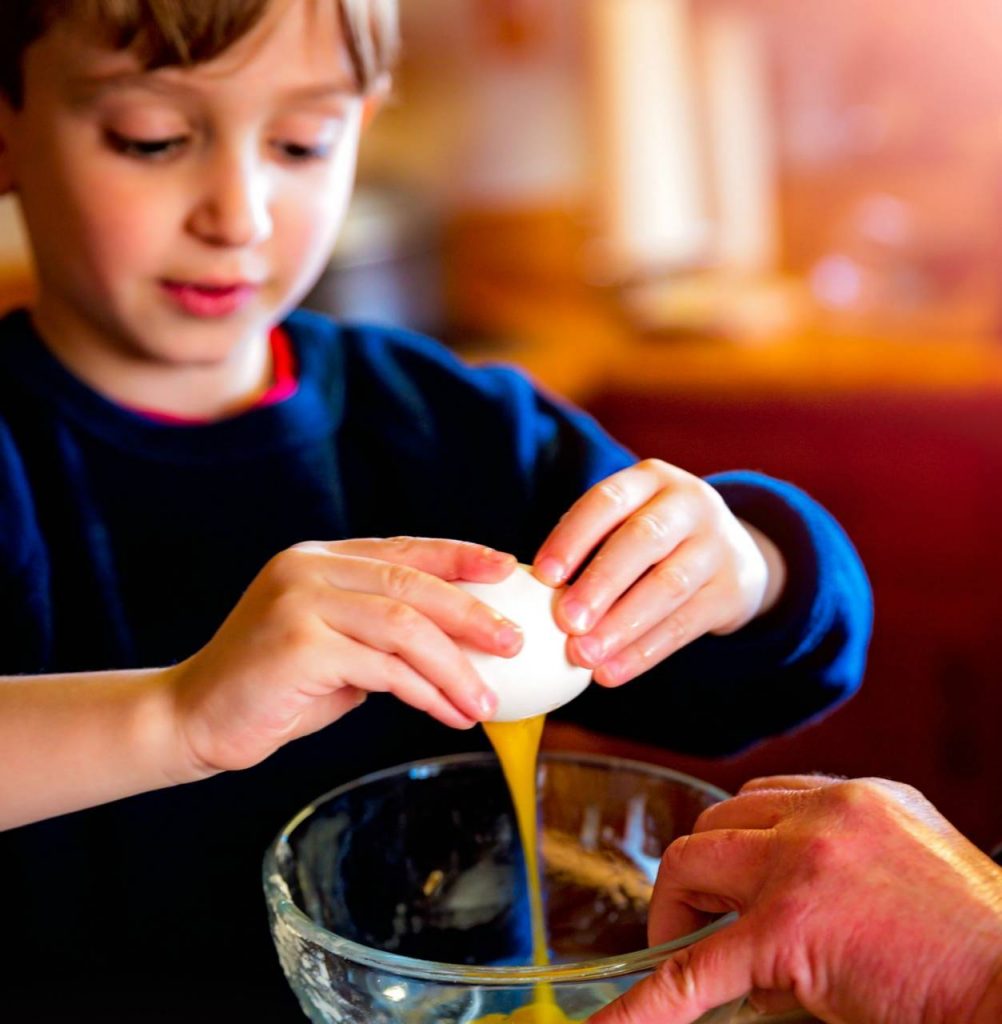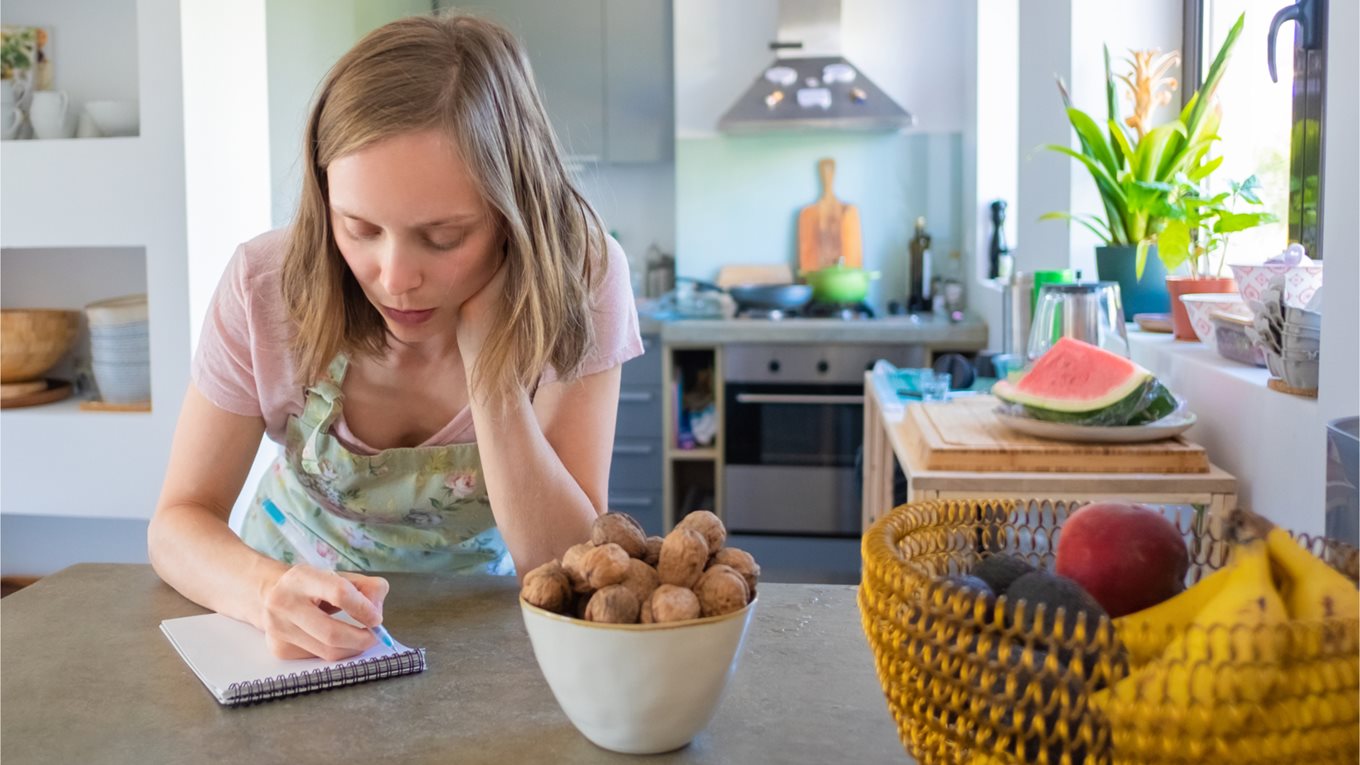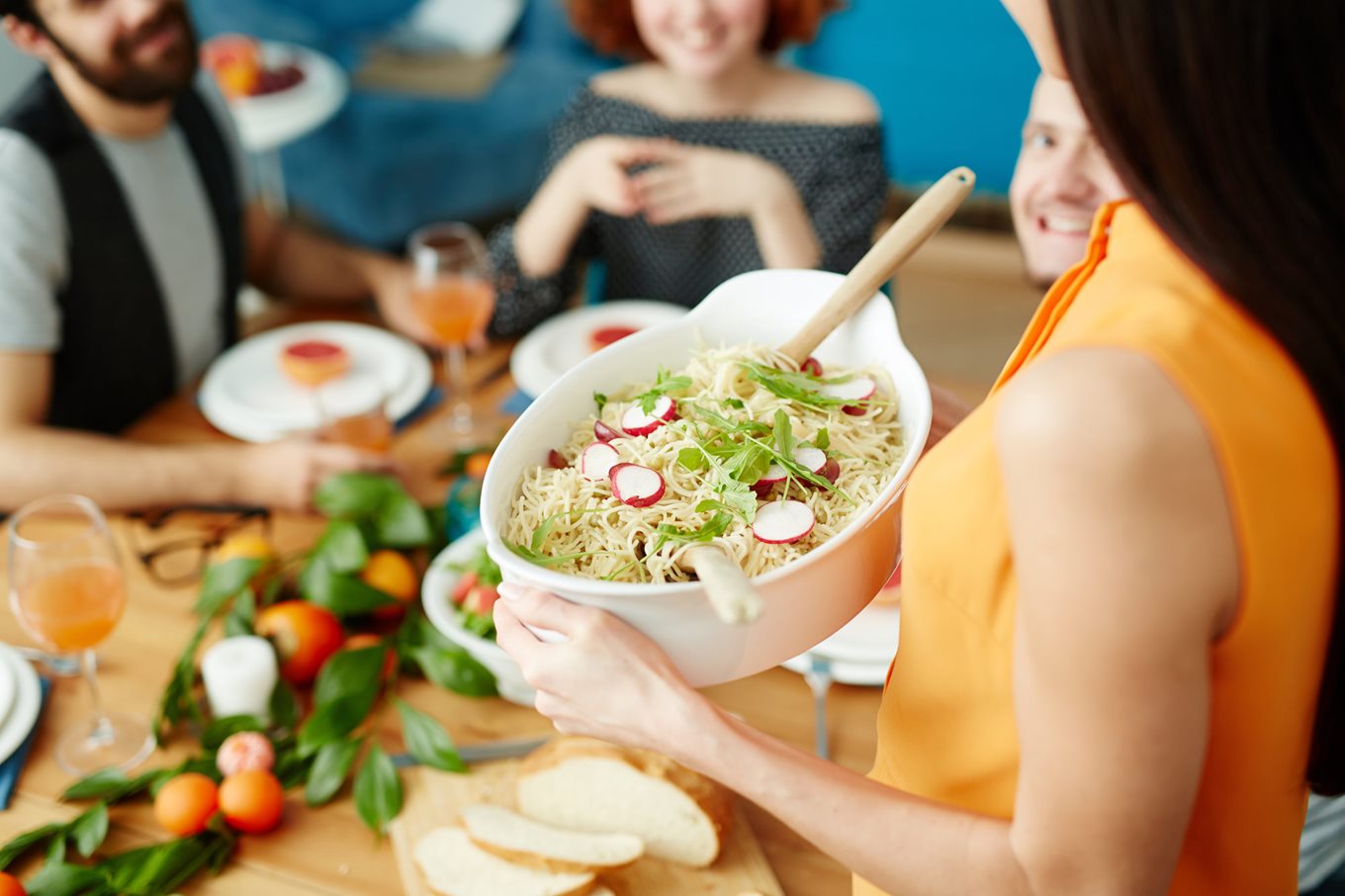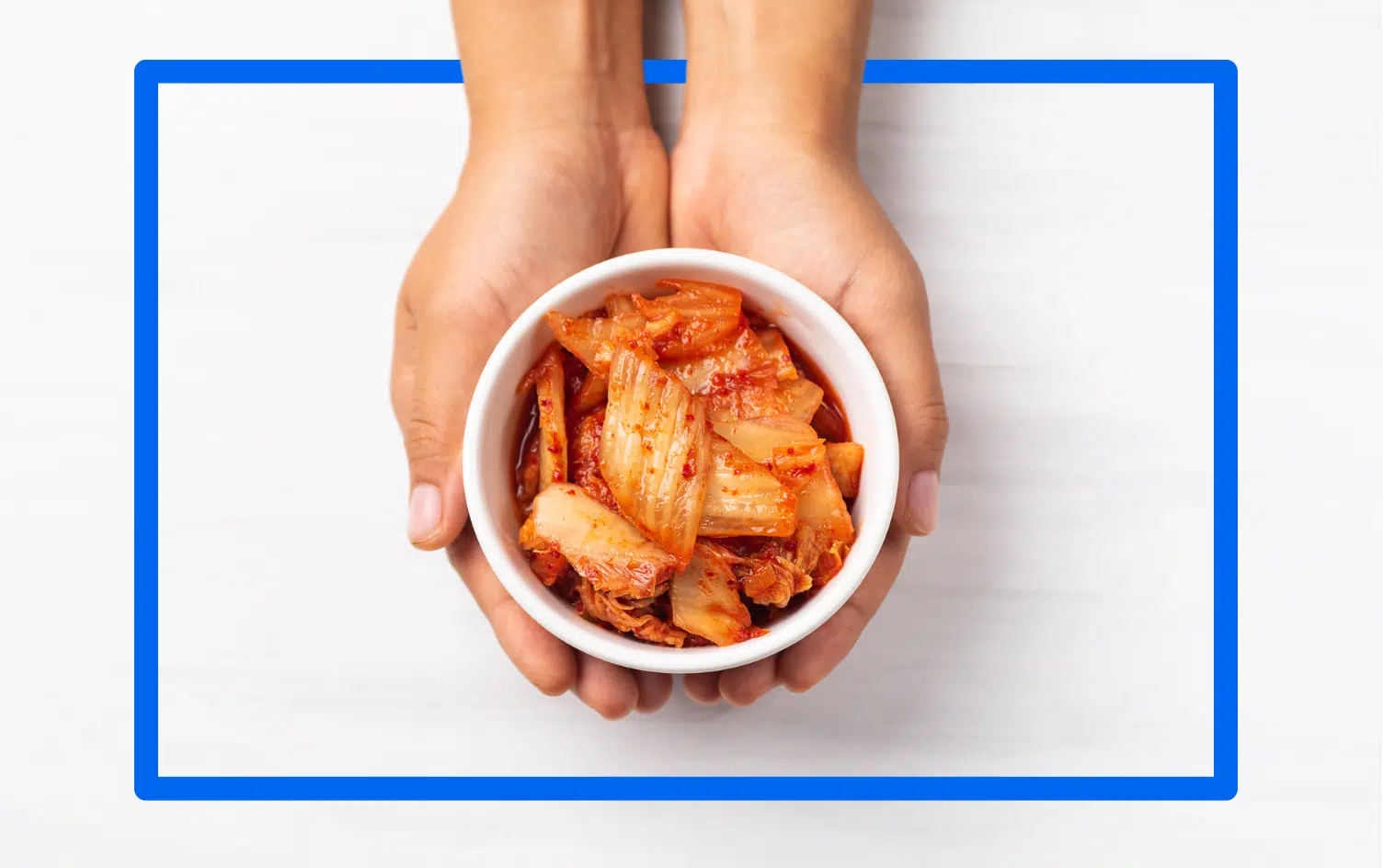Getting my kids involved in the kitchen – are you crazy?
Slightly, yes, but honestly, no matter how old your child happens to be, they can help in the kitchen in some way and participate in the cooking of family meals.
Whether it’s holding a spoon (or tapping it), smelling spices, kneading and rolling out dough, throwing sliced mushrooms on a pizza base, reading a recipe, stirring a soup, or even preparing a meal – there’s something for everyone.
Taking a child-centered approach
First, some suggestions from my own experience. I suggest thinking about when to let your child join you in the kitchen. Having them there all the time can be time-consuming and potentially stressful – mostly because they won’t be doing what you want to do all the time.
Secondly, when you decide to invite them in, let them experience them, not yourself.
Motivate them, heighten their curiosity, pique their interest, and give them a sense of wonder, experimentation, and responsibility (yes, even if they’re only 4 years old.)
Let go of the goal that you have to produce the meal you imagine or want. Lead and know where you’re going, but try to let go a little.
This has always been hard for me because I’m a bit of a control freak in the kitchen.
“No, you’re not stirring the soup the right way!!!”
…as if there is a right or wrong way to stir soup!
So I struggled, but learned to let things happen another way than my way. As long as everything is safe and produces something edible, I’m happy.
I find that my kids feel empowered when I do this.
Now let’s look at motivation.

Motivating Your Child to Start Cooking
When it comes to motivation, the most important step is to give your child some level of responsibility. It’s then that they begin to feel ownership of many things, including their food, their health, the running of the household, and so on.
The second thing I suggest is to invite and encourage, not tell. Once you start telling them they “should” be involved in the kitchen and cooking, you’ve lost them.
Of course, don’t tell them they “should” because it’s good for them. Of course it is, but very few kids do things because “it’s good for them”.
“Telling can work when they are young, perhaps 5 to 7 years old, but as they get older, the power of telling decreases in motivating them to do things.
Inviting and making them want to join in works better.
Some good tips I’ve found for getting them into the kitchen are
Curiosity – “I’m going to do a science experiment in the kitchen today and I want to know what happens?
Prohibition – “It’s best if you don’t join me in the kitchen, dinner is more of a big deal today”
Suggestions – “I can’t wait to try this recipe, would you like to see it?
Kids cracking eggs in the kitchen
Some ideas for keeping them in the kitchen are
Responsibility – “Can you be in charge of mixing/tasting/beating eggs today?
Role – “Good day, you’re the head sous chef” or “Good day, I need you at the veggie station”
Identity – First, give them a professional chef’s apron. Second, use chef jargon – “It’s time to plate” – “Do we dice or shred those carrots?
…If you’re not sure about the terminology, you can learn most of it on Masterchef.
The many skills kids can learn
Of course, there are a number of sub-skills that kids can learn through cooking in addition to the actual cooking.
They can learn
Patience – (waiting for the onions to soften in the skillet)
Teamwork (“you hold this, I’ll pour this”)
Organization (washing hands, then preparing ingredients, and finally everyone is organized)
Sorting (we need to wash the mushrooms, then cut them up, then fry them)
Communication (“This is hot, be careful!
As well as developing their senses of smell, taste, touch and even sight.
There’s also a lot of cross-curricular stuff going on – which is fantastic.
Science, chemistry, math, geography as well as nature are all present in the kitchen. Here are some great ideas on how to do this. Doing cross-referencing is great, especially if you know what they are currently studying at school.
So if they are doing “division of labor” at school and you want to make a meal for 2 and the recipe is for 6, then you need to divide up the work and you can comment on that so they realize how it relates to what they are doing at school.
Help them to see the connection, but try not to turn the kitchen experience into a lesson. Once you go into ‘teacher mode’ they tend to switch off and you may lose them back in the kitchen.



